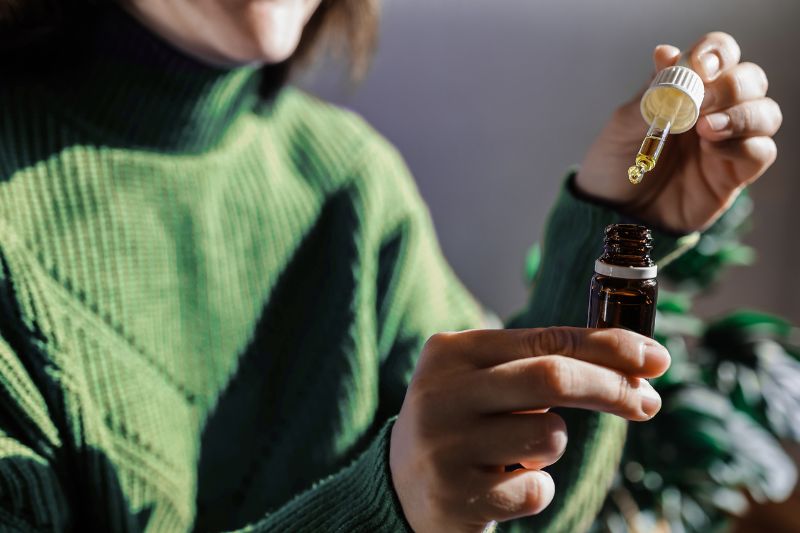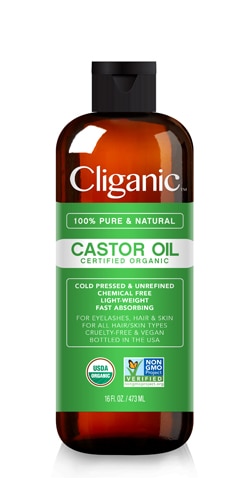[vc_row][vc_column][vc_column_text]Do you collect essential oils? Many wellness-conscious families maintain a natural pharmacopoeia of some kind, with a variety of simple, traditional remedies. Essential oils are often included among these healthy provisions, given the many benefits and applications they offer. Essential oils are, by definition, plant-based, volatile oils comprised of various phytochemical compounds. To make them, the “essence” of a plant is distilled into a liquefied form.

The most popular essential oils and their uses
Lavender ? The most popular essential oil in the world, lavender has a simultaneously floral and herbaceous aroma. Soothing, calming, normalizing and balancing, it is also considered one of the safest oils to use for adults and children.
Uses – Try it in massage oil, in an atomizer as a room freshener or a bed mist to help you unwind and aid relaxation after a tense day. Learn why lavender oil ranks among
the best essential oils for anxiety.
Peppermint – The second most popular essential oil in the United States, steam-distilled from the leaves of the peppermint plant, peppermint oil is cooling to the skin and gives off a fresh, grassy aroma.
Uses – According to the National Institutes of Health (NIH),
peppermint oil is used for problems like headache, muscle aches, joint pain, and itching. In aromatherapy, peppermint oil may be promoted for treating coughs and colds, reducing pain, improving mental function and reducing stress.
Grapefruit ? This crisp, uplifting oil produces a fresh, fruity and clean aroma which is almost identical to the broken peel of a fresh grapefruit. It is thought to be purifying, cheerful and uplifting.
Uses – Grapefruit oil is featured in body care products like creams and massage oils, as well as many natural cleaning products. For a lovely room freshener, simply add a drop each of lavender, peppermint and grapefruit oils to a diffuser and enjoy. As this refreshing oil supports healthy skin as well, it is a core ingredient in this
DIY probiotic overnight cream.
Eucalyptus ? Long renowned for its cooling, soothing effects, eucalyptus is often included as an ingredient in vapor rubs and ointments. It is a favorite for casual users and aromatherapists due to its strongly
camphoraceous medicinal aroma.
Uses – Along with other applications, many people breathe in eucalyptus steam as, according to
Mount Sinai Medical Center, this may help to relieve symptoms of bronchitis, coughs, and the flu.
Geranium ?
Geranium oil is considered relaxing, calming and balancing, with a scent similar to other floral oils, such as rose or lavender. It contains active ingredients, citronellol, geranol and linalol.
Uses – Along with anecdotal evidence, researchers have examined the benefits of geranium essential oil in several human and animal studies
. It is thought to have antioxidant, antibacterial, anti-inflammatory, antimicrobial and astringent properties.
Clary Sage - This herbaceous, lavender-like, essential oil is known for its balancing, uplifting, euphoric capacities and gentle nature. It is uplifting but not overly invigorating, making it ideal for relaxing and resetting.
Uses – As it is suited to both oily and dry skin types, this oil has a cooling property that can be soothing to inflamed skin and rashes. The balancing elements of Clary Sage are believed to help to stabilize the production of natural oil and sebum to minimize acne breakouts. It has a wide variety of applications, from body and massage oils to room diffusions.
When it comes to any essential oil, it is important to note that people can have varying reactions, as they might to other medicinal products. These oils should therefore be employed with caution, especially in homes with children, who tend to be more susceptible to toxic effects than adults given their thin skin and immature livers.
Can you consume essential oils?
According to the Tisserand Institute Safety Guidelines,
the answer is yes, as they are powerful substances and can be harmful if not used with diligent care. As bottled essential oils are 50-100 times more concentrated than in the plant, there are safety issues that do not necessarily apply to the whole plant or herbal extract.
Taking essential oils orally places you at risk of mouth/stomach irritation if oils are either undiluted or in water. Essential oils are highly potent and can have serious side effects when ingested, including potentially irritating the internal organs and permanently affecting your digestive lining.
Essential oils and their potential for toxicity
- Clove – Ingesting this oil is linked to problems such as hepatotoxicity (liver damage), renal failure, inhalational pneumonitis, coma and more. Additionally, clove oil contains a chemical called eugenol that appears to slow blood clotting, and should be avoided by people with bleeding disorders.
- Eucalyptus – Despite its benefits, this oil is highly toxic and should be used with caution. Ingesting as little as 5 mL can lead to severe symptoms up to 4 hours after exposure. Primary concerns are central nervous system (CNS) depression and respiratory problems.
- Fennel – Consumption of this oil may lead to nausea, vomiting, seizure and pulmonary edema, a condition caused by excessive fluid in the lungs.
- Geranium – This oil may cause allergic contact cheilitis, which is a delayed-type hypersensitivity reaction to allergens that may cause inflammation of the lips.
- Lavender – Linalyl acetate and linalool in lavender oil are poisonous. Ingestion may cause central nervous system (CNS) depression, and ataxia, which is a condition of poor muscle control that can affect walking and balance, hand coordination, speech and swallowing and eye movements.
- Lemon myrtle – Improper use of this oil may cause skin irritation. In one study, in vitro cytotoxicity testing revealed that both Lemon Myrtle oil may have a toxic effect on human cell lines when concentrations exceed 1%.
- Nutmeg – Consuming this oil may produce symptoms similar to those of an anticholinergic poisoning and may lead to an agitated (hyperactive) delirium, typically including confusion and extreme restlessness. Other possible effects include giddiness, tingling, euphoria, hallucinations, detachment from reality and fear of impending death.
- Pennyroyal – Ingestion of this oil requires urgent discussion with a toxicologist. Symptoms may include nausea, vomiting, abdominal pain, lethargy, agitation, dizziness and weakness. Large ingestions may promote hepatotoxicity (liver damage), renal failure and coma.
- Tea tree – A toxic oil if swallowed. Side effects that may include confusion, a lack of muscle control or coordination of voluntary movements (ataxia) and decreasing levels of consciousness.
- Wintergreen (98% Methyl Salicylate) – Consuming as little as 1-2 mL may be toxic, while 6 mL (about a teaspoon) can be fatal. Smaller amounts may cause nausea, vomiting, tinnitus, vertigo, hyperventilation and seizures.
- Wormwood – While it may help reduce inflammation, relieve pain, regulate menstruation, and treat parasites, consuming this oil may cause acidosis, acute renal failure, respiratory acidosis, rhabdomyolysis, visual alterations, delirium, restlessness, paranoia, tremor and seizures.
What happens if you consume essential oils?
If you or others consume any of these oils, medical attention may be warranted. Directives from the
Ontario Poison Center for home treatment are as follows:
- If swallowed, provide small sips of water to drink.
- Wash exposed skin with mild soap and lukewarm water for several minutes.
- For eye exposures, rinse them gently for at least 15 minutes with lukewarm water.
- Call the Poison Center for further advice.
- If the person exposed has difficulty breathing, call 911.
It is also worth noting that essential oils are natural products that can vary from batch to batch, even with high-quality brands. This means they can have effects on our bodies which cannot always be predicted.
On a brighter note, let’s remember that virtually all wellness-related products should be used as directed, as nutritional and herbal supplements, botanical preparations, certain foods, and even water have the capacity for harm if used improperly. It pays to thoroughly explore your natural health options, while also ensuring you are a safe, well-informed consumer along the way.
[/vc_column_text][/vc_column][/vc_row][vc_row][vc_column][vc_text_separator title="Featured Products" border_width="2"][vc_row_inner equal_height="yes" content_placement="middle" gap="35"][vc_column_inner width="1/3"][vc_single_image image="173685" img_size="full" alignment="center" onclick="custom_link" img_link_target="_blank" css=".vc_custom_1710791086064{padding-right: 7% !important;padding-left: 7% !important;}" link="https://www.vitacost.com/aura-cacia-100-pure-essential-oil-clary-sage"][/vc_column_inner][vc_column_inner width="1/3"][vc_single_image image="173684" img_size="full" alignment="center" onclick="custom_link" img_link_target="_blank" css=".vc_custom_1710791111378{padding-right: 7% !important;padding-left: 7% !important;}" link="https://www.vitacost.com/aura-cacia-pure-essential-oil-sandalwood-in-jojoba-oil"][/vc_column_inner][vc_column_inner width="1/3"][vc_single_image image="173683" img_size="full" onclick="custom_link" img_link_target="_blank" link="https://www.vitacost.com/aura-cacia-pure-essential-oil-jasmine-absolute-in-jojoba-oil"][/vc_column_inner][/vc_row_inner][/vc_column][/vc_row]




